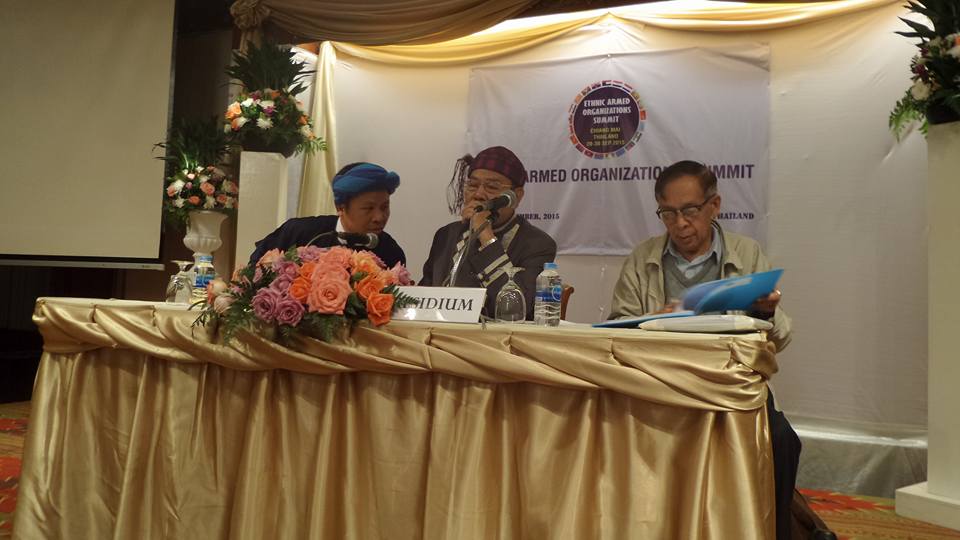Only seven of 19 delegations attending the second day of a summit of ethnic armed organisations today in Chiang Mai have agreed to sign a nationwide ceasefire agreement with Naypyidaw.
The groups that have signalled that they will sign a nationwide ceasefire accord are: Karen National Union, Democratic Benevolent Karen Army, Karen Peace Council, Arakan Liberation Party, All-Burma Students Democratic Front, Pa-Oh* National Liberation Organisation, and Chin National Front.
Among the major groups that say they will abstain from signing are: Kachin Independence Organisation, New Mon State Party, Karenni National Progressive Party, and the Ta-ang National Liberation Army (TNLA).
The Arakan Army, the TNLA and Kokang rebels the Myanmar Nationalities Democratic Alliance Army are at this moment blocked from the signing of a possible nationwide ceasefire agreement, having been involved in heavy fighting with the Burmese army this year.
The TNLA has for the last week pondered the signing of a bi-lateral accord with Naypyidaw, that could see the army join a nationwide pact in the future.
Tar Aik Bong, chairman of the TNLA, told DVB: “While some of the groups are to sign the agreement, the majority of us need to take some time- we are not saying we won’t sign but we need more time to continue negotiations as we see that it will be appropriate to only sign the agreement when there are more solid guarantees. So we decided to side with the groups that are not signing the ceasefire agreement.”
The remaining groups at the summit said they stand by an earlier decision to only accede to a ceasefire when each armed group can be included in the deal, and vowed to continue negotiating for inclusiveness with the government.
The National Democratic Alliance Army– Eastern Shan State, commonly refereed to as the Mongla Group and the Restoration Council of Shan State, which governs the Shan State Army-South, gave no indication of their plans other than stating that their leaders did not have the mandate to make a final call at the summit.
[related]
With the conclusion of the latest summit, it remains just this seven ethnic armed groups country-wide that have indicated they will sign a ceasefire agreement.
The United Wa State Army, a major armed group in Shan State, released a statement at the beginning of September announcing they had no intention of signing an agreement, and did not attend the summit.
The armed groups that are set to sign a nationwide ceasefire will form a joint-committee with the government to facilitate the signing, which is tipped to occur in mid-October.
An earlier 9 September meeting between President Thein Sein and senior group leaders managed to finalise a draft of the ceasefire, but reached a deadlock over which groups are to be included in the final deal.
According to the nationwide ceasefire agreement, the government and armed groups will draft the framework for the political dialogue within 60 days of inking the agreement. Naypyidaw has promised the armed groups that the agreed upon political dialogue will be enacted a further three months after the ceasefire is established.
Read more about the peace process here.
* Not Palaung as originally reported. We apologise for this error.



